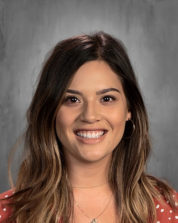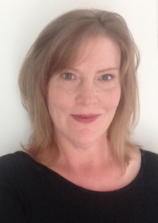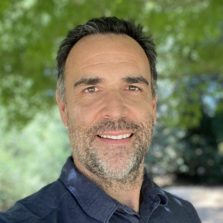These interviews have been edited for conciseness and clarity. Interviews by Caitlin Kaliski and Vedant Gaur.
Jessica Frankel

What were you doing before you got a job at Aragon?
I have been teaching in Colorado for the last four years. I went to school at University of San Francisco and then decided I wanted to move away to try something different so I moved to Denver. … But it was just time for me to come back home to all of my friends and family.
Where did you go to school when you were younger?
I went to Aragon. I went to Fiesta Gardens Elementary School, Borel Middle School and then I went to Aragon High School. I graduated in 2011.
Were you very excited about getting a job at Aragon?
Yes, I was actually interviewed by one of my former teachers and our last principal, Mrs. Kurtz, who was my principal my senior year. It was definitely exciting talking to them during the interviews, and to hear that I got the job.
If you were to tell your high school self that you would be returning to Aragon as a teacher, what do you think your reaction would be?
Honestly I think my high school self would say: “That makes sense.” I just really enjoyed my high school experience. I was one of those people who did not want to leave. There was obviously a part of me that was excited to go to college but I just loved Aragon so much which is why I was so excited to come back as a teacher. I had so many great teachers and a lot of them are still here and now my co-workers.
As a social science teacher, how do you think these current times will be portrayed in history years from now?
I try to really immerse myself in my work and not think about the larger consequences of what’s happening this year. This pandemic, the fires, and it’s an election year, it’s really interesting. I definitely think this will be written in the history books. … We’re living in it, and there’s already a lot of portrayals.
What is your advice to all of the students at Aragon for distance learning and beyond?
Overall, my biggest advice is to always do your best. If you always do your best, even if you don’t get an A, you won’t have a huge feeling of regret. … For me, sometimes my best work wasn’t an A+, but if I worked really hard , that’s all anyone could ask for. I think working putting your best out there is really the best thing you can do for all times in your life.
Greta Huneke

What were you doing before you came to Aragon?
I’ve been teaching for a couple of decades. My last teaching assignment was in Novato at San Marin High School. They didn’t renew my contract due to COVID-19. … I taught in Novato for two and a half years, and before that I’ve taught kinda all over the Bay Area and back East. I’ve only taught high school social studies, and I’ve taught just about every course there is to teach in social studies.
What is your favorite part about teaching?
My favorite part about teaching is definitely the interaction with students. Although Zoom can be a little bit frustrating, I am thinking of new ways to do it. … We have to recreate … the dynamic in the classroom which we are losing with [online learning]. … Students exchanging ideas, getting excited over a topic and thinking critically on their feet — it’s really thrilling to watch it. It never gets old, ever.
What are some things that you enjoy doing outside of school?
I love to cook. I cook to meditate. I love to read when I have time. … I also love to binge watch Netflix, like we all do. I love to hike, [and] I live up in the Oakland hills so I do a lot of hiking up here. I have a 17-year-old cat named Topper who I adore. He’s been my quarantine companion during this COVID crisis. He’s very special to me. Other than that … I have some family in the Bay Area so we get together from time to time.
Do you have any interesting stories from being a teacher?
One of my favorite humorous stories was during my first year or second year. I was teaching World History, and we were doing a lesson on geography. A student raised his hand and said with all seriousness: “What did they call South America in the 1800s.” Everybody kind of just stopped and held their breath. So I answered in all seriousness: “Well they called it South America.” I’ve gotten these silly questions that bring a laugh over the years.
What is going to be your advice to all the students of Aragon?
Being a history teacher, this is a really historic moment where it is a huge burden but it is also a moment in time [where] students who are in school today … are living through a historical event. … I think in the long run, in any tragedy or hardship, we’re always going to have to look for the lesson and the positive thing. Try not to get too frustrated, try to be flexible and communicate with your teachers. Keep plowing through. It’s not forever. Hang in there, there will be redeeming things to come out of this.
Greg Moretti

Where did you grow up?
I grew up in the Bay Area, specifically in Woodside, and I went to Sacred Heart for high school.
Was there anything that led you to want to teach or become a teacher?
I started teaching when I first graduated from college. I taught at St. Elizabeth Seton, a private school that served kids coming over from East Palo Alto. I decided I wanted to go to grad school, and that’s where I continued studying environmental management and ended up wanting to go into that career. When I was living out in Saipan, … they had a junior college called the Northern Marianas college. They invited me to come teach at the college after school, so I taught some environmental courses there.
What did you do before coming to Aragon?
For the last five to six years, I was teaching biology and marine biology at a private school down in San Bernardino.
Why did you decide to come to this district, or Aragon in particular?
My wife and I wanted to move back to the Bay Area because I have a lot of family here. My dad, and all my siblings, and everybody’s [else is] here in the Bay Area, so we wanted to be closer to a family.
Have there been any memorable moments in your teaching career, or your career working in the environmental field?
I think some of the best memories I have are just, when I lived in Micronesia, and when I was able to travel to different islands and work with other people in the environmental field on those islands. … Myself and other environmental managers from all over Micronesia went to this rural village in Chuuk, and they welcomed us with this is a place that has no roads. There was a banquet in the village that we attended, [but] there wasn’t a single utensil of any kind, no plates, no silverware. Everything was made from the environment. There we ate off of banana leaves, and plates that were woven out of palm leaves. We drank our drinks out of coconuts, and all of the food was locally harvested fish, crab and other foods from the jungle.
Has your experience at Aragon been good so far?
I feel especially coming in during a time like this, it’s like vastly different now, but it’s been good. I’ve met a lot of helpful people trying to get us set up with distance learning. … I already feel like I’m part of a community, even though I haven’t [really] met anybody in person.
Do you have any favorite part of teaching?
I really like being able to introduce students to new things and to see when something sparks an interest. It’s sort of like you can almost see a light go o[ff] in [their] heads and then they have this thirst for knowledge to learn more and more about it.
Do you have any hobbies you like to enjoy doing on the side?
I’ve done a lot of photography in my life and on my travels, and I do a lot of portraits of my family. I have a pretty big family here in the Bay Area, so I’m always their go to portrait photographer. I also like mountain biking a lot. I think I’ve only been on a proper road bike, maybe once. I borrowed one and they’re fun, they’re really fast.
Do you have a certain philosophy when it comes to teaching?
I really believe that every student deserves to learn, and that every student deserves to have it to have a chance to learn and to have the tools they need to be able to be successful. I think every student can be successful, so I’ve tried to figure out what tools I can use to help all my students be successful, not just the straight A students, but everybody.




